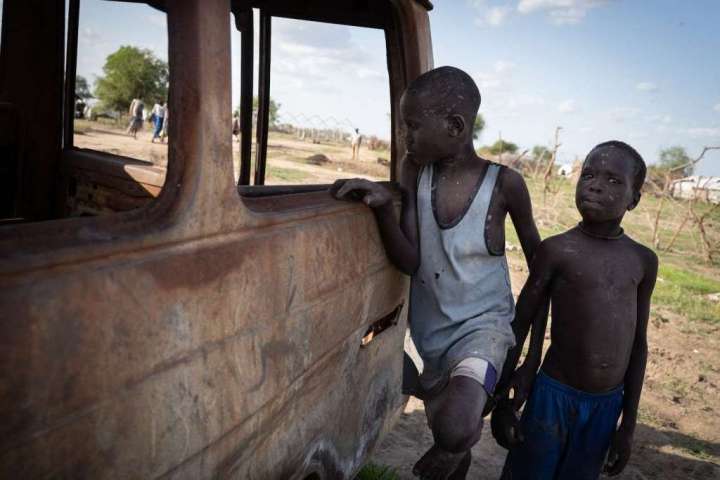The simplicity of the requests is what got to me. They weren’t seeking money, but prayers. Prayers on behalf of Maridi, a small diocese of the Episcopal Church in war-torn South Sudan.
Answering suffering extends beyond the horizon

“Pray,” they asked, “for the clergy of the Diocese — and for the provision of some means of transport, such as bicycles and motor bikes.”
I am reading these modest, even humble petitions, which come to me by way of Forward Day by Day daily meditations, while seated in this capital city of Washington, D.C. A city that just celebrated the opening of a huge new up-to-the-latest–everything grocery store to serve neighborhoods that already share several well-stocked grocery stores.
I think back to the Maridi appeal:
“Pray for the farmers for seeds and agricultural tools for cultivation of their land.” “May those struggling with cultivation bear fruit and will benefit many people in the Diocese.”
I applaud D.C. Mayor Muriel E. Bowser (D) for producing a new shelter facility specifically dedicated to providing housing and services to city residents who are experiencing homelessness and identify as LGBTQ. Talk about breaking down barriers to shelter, building community, connecting people with what they need to get up and get going. “Safe, welcoming shelter,” as Laura Green Zeilinger, director of the Department of Human Services put it. Taxpayers paid for the city’s benevolence.
A world away, Maridi’s prayer for the homeless and displaced is far less grand.
“Pray for the primary school project and thank God for [organizations that support] this project [as it recovers] from the situations of insecurity and war.” “Pray for [displaced parishes] now trying to resettle in their homes.” “Pray for the displaced Christians who are living around the Cathedral Area,” they ask.
There’s a lot of chest-thumping going on among D.C. Council members who forced the mayor to report back to them about the percentage of doors in each school building that properly lock, and the working status of every air-conditioning and heating system, ahead of the upcoming academic year.
In Maridi, they give thanks for having a place “to encourage girls to complete their schooling.”
Unfair, unfair, some might say. Comparing conditions in South Sudan with living in D.C. Juxtaposing the hardships of a developing nation with a modernized urban environment like the District’s is a comparison of apples and oranges, and a slur on the motives and aspirations of D.C. leaders. All of which would be true if those were in fact the reasons for this piece. They are not.
Those Maridi prayer appeals convict me. They tell me how little my concerns are directed toward the needs of others who are out of sight — and shamefully out of mind.
The piece is an indictment of self-absorption. My preoccupation, or so I tell myself, with the pain and needs of people ostensibly within my reach — my neighbors — to the extent of missing the heart of why I’m here on this Earth.
Maybe I’m no better able to help those souls in South Sudan than I have been able to tangibly improve the fortunes of my fellow residents of this city. But I owe it to both them and my raison d’être to, in some small way, try.
Schools, for goodness’ sake, “still operating under trees.”






